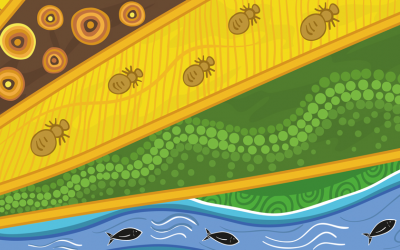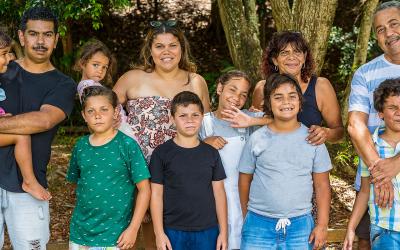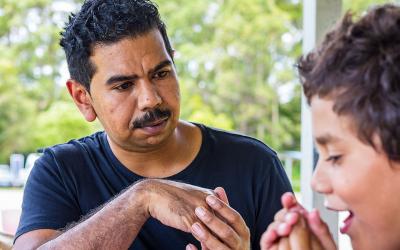We have published a wealth of information on Australian health and medical research, and on specific issues relating to Australian health and health care. These include statements, strategies, guidelines and other reports – all of which are publicly available.
Search our publications including guidelines, annual reports, corporate plans, reports and 10 of the Best. See more at Resources.
If you are unable to find what you are looking for, you can search for archived publications on the National Library's Australian Government Web Archive (Trove).

IREC Review Consultation Report
The purpose of this report is to provide a summary of feedback received as part of the national consultation to review NHMRC’s Indigenous Research Excellence Criteria (IREC).


Reconciliation Action Plan 2022-24
Our commitment to improving the health of Aboriginal and Torres Strait Islander peoples covers all aspects of NHMRC’s responsibilities, as well as contributing to the Australian Government’s National Aboriginal and Torres Strait Islander Health Plan 2021-2031.
NHMRC renewed our Innovate Reconciliation Action Plan (RAP) in collaboration with Reconciliation Australia about turning good intentions into real actions and rising to the challenge of reconciling Australia. A RAP is a business plan that uses a holistic approach to create meaningful relationships, enhance respect and promote sustainable opportunities for Aboriginal and Torres Strait Islander Australians.
Our previous Reconciliation Action Plan 2016-2018, is available on the National Library's Australian Government Web Archive.


Ethical conduct in research with Aboriginal and Torres Strait Islander Peoples and communities
Ethical conduct in research with Aboriginal and Torres Strait Islander Peoples and communities: Guidelines for researchers and stakeholders provides a set of principles to ensure research is safe, respectful, responsible, high quality and of benefit to Aboriginal and Torres Strait Islander people and communities.

Keeping research on track II
Keeping research on track II was developed to provide advice on how the values and principles outlined in Ethical conduct in research with Aboriginal and Torres Strait Islander Peoples and communities: Guidelines for researchers and stakeholders can be put into practice in research.

Road Map 3 - Report of Community Consultations
Road Map 3: A strategic framework for improving Aboriginal and Torres Strait Islander health through research. Report of Community Consultations.
Linked to:

Road Map 3 – A strategic framework
Road Map 3: A strategic framework for improving Aboriginal and Torres Strait Islander health through research.
Linked to:

Road map II: A strategic framework for improving the health of Aboriginal and Torres Strait Islander people through research
Road map II: A strategic framework for improving the health of Aboriginal and Torres Strait Islander people through research will be used by the NHMRC’s Research Committee to identify research topics requiring priority funding.

Keeping research on track
Keeping research on track: a guide for Aboriginal and Torres Strait Islander peoples about health research ethics was designed for Aboriginal and Torres Strait Islander communities when they are considering conducting or being involved with health research.

Values and ethics - Guidelines for ethical conduct in Aboriginal and Torres Strait Islander health research
This document provided guidance to researchers and Human Research Ethics Committees on the complex considerations necessary in the conception, design and conduct of appropriate research in Aboriginal and Torres Strait Islander communities.